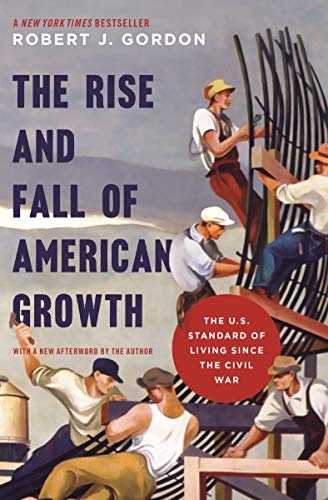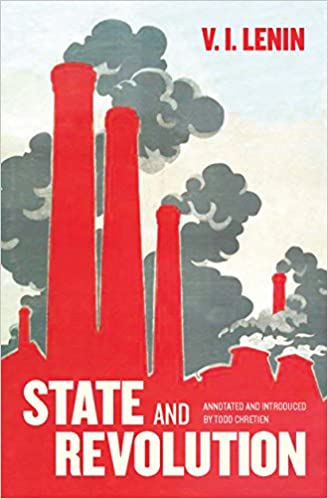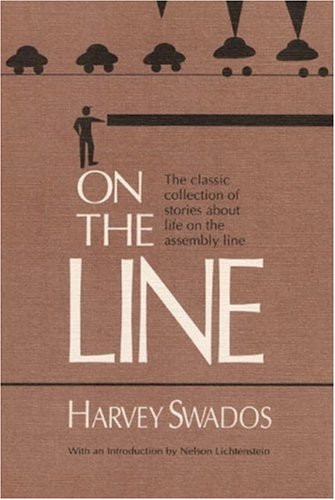Welcome to the Reading Roundup, a forum for ATX DSA members to share what they’ve been reading and how it’s informing their political education.
The Rise and Fall of American Growth: The U.S. Standard of Living since the Civil War
By Robert J. Gordon

In 1870 American cities, there was a horse for every five people. Manure was everywhere. It was a public health hazard and it smelled. The Rise and Fall of American Growth, by Robert Gordon, traces American quality of life through such long-forgotten facts and many many others. It argues that the great inventions of the late 19th century—electrification, running water, the internal combustion engine, the telephone—brought about unprecedented rapid improvement in American quality of life that could never be repeated. It makes you wonder, could we improve quality of life again without spectacular technological advances? Gordon doesn’t seem to say we can’t. In fact, he often points out the pivotal role of government in helping and hindering the spread of the benefits of innovation. I for one will never again doubt the importance of food and drug regulation, without which we’d all probably still be buying adulterated flour and contaminated milk. But with all those innovations have come new opportunities for industries to cut corners. And the harms aren’t as obvious as manure piled up in the streets.
—Philip M.
State and Revolution
By Vladimir Lenin

Lenin’s seminal work is a romp through all the debates of old socialist politics. Many people choose to focus on Lenin’s insistence on the necessity of violent revolution, which can obscure some of the most interesting parts of the pamphlet. Lenin’s automaton-like knowledge of Marxist orthodoxy turns State and Revolution into a rosetta stone for Marx and Engels’ most trenchant observations. If you can think of a famous Marx quote, chances are Lenin cites it in State and Revolution. Of note is Lenin’s insistence that Marx insisted that the party must “use even of the ‘pigsty’ of bourgeois parliamentarism, especially when the situation was obviously not revolutionary”. One has to wonder, is that the approach the left has towards elections today? The false dichotomy between believing in legislation’s ability to change everything and being completely nihilistic on “electoralism” has bedeviled the left for years. Lenin instead argues that while these forms need to be transcended eventually, they must be used for agitation and organization. We would do well to emulate Lenin’s pragmatism on this question, along with many others.
—Paul S.
The Red Deal
By The Red Nation

This short manifesto discusses the centrality of decolonization and anti-imperialism in radical left movements, particularly when thinking about increasingly popular calls for a Green New Deal.
The Red Deal explains how indigenous liberation in the US is an integral part of revolution. It lays out concrete examples of how past harms have shaped the global crises we know today and offers an alternative worldview that can inform the hard work of organizing for a just future in the midst of climate crisis and disaster capitalism.
The Red Nation calls on all people to end the occupation of land in the US and abroad. To heal our bodies and the planet through a social order that prioritizes care, not profit. By recognizing indigenous treaties, abolishing anti-poor, punitive systems like prisons or police. Provide all people with basic needs like housing and good food. Living in harmony with our non-human family (not destroying the planet for money!!!).
Of course, freedom and a future for our planet will not be won by savvy policy or benevolent tech genius: it will be won by regular people coming together and making critical decisions about how we lead our lives as a collective.
As DSA grows nationally and builds power locally, we will be faced with the question of compromise on core socialist principles as part of a larger strategy. Many people will dismiss political programs like the Red Deal as too ambitious. As socialists, we must connect the most severe and cruel forms of neocolonial, capitalist exploitation to the everyday struggle of workers across the globe.
—Ana P.
On the Line
By Harvey Swados

Harvey Swados’ 1957 collection of short stories On The Line is one of the rare pieces of post-war American fiction that deals with working life from a distinctly working-class perspective. Through a series of interconnected portraits of factory workers at a suburban auto plant, Swados gives an indelible impression of the lives of working people and the loneliness, degradation, and abandonment of hope that often haunts them. The fifties are often depicted as a period of unbridled prosperity, a time when (white) working families could rise from the ranks and live a middle-class life. Middle-class writers of the period, seeing the rise of homeownership and increasing standard of living, went so far as to predict the death of the working class and its absorption into the middle. Swados counters these prevailing narratives, or what he called “The Myth of the Happy Worker” in his seminal 1957 essay, with frank depictions of the lives of the average working person and how their dreams are crushed in the gears of capitalist production His portraits are more relevant than ever now that all pretenses of social mobility in the US have been replaced by grim material realities.
Reading On the Line is not an uplifting experience, but it’s only natural that Swados as a lifelong socialist should end his story on a hopeful note. In the final story an older worker, ground down and apathetic after a lifetime of work, attends a union picnic and sees a way out of his existential despair. The auto plant depicted by Swados has largely been replaced by Amazon warehouses, gigantic hospitals, and service industry enterprises, but class struggle is just as much a reality as it was when this was written. The powerful lesson of On the Line is that if we hope to find a way out of the despair imposed on us by work, it will have to be through collective struggle.
—Jake J.
Interested in making a contribution to next month’s Reading Roundup? Send a 250-word blurb to redfault@austindsa.org!

